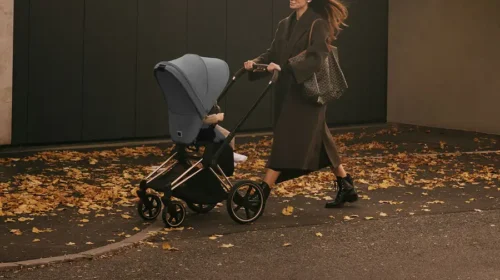Yan Palace swoops back to profit growth

China’s largest edible bird’s nest brand said its profit rose 20% to 35% in the first half of 2025, returning to bottom line growth despite pressure on revenue
Key Takeaways:
- Yan Palace said it expects to report its profit grew 20% to 35% increase in the first six months of 2025 despite flat to negative revenue growth
- Lower selling costs, a new “intelligent” factory in Xiamen and new products are boosting margins for the maker of bird’s nest products
By Edith Terry
In these economic turbulent times, Chinese consumers are finding more affordable variations on traditional products made from bird’s nests easier to swallow.
That’s a key message coming from Xiamen Yan Palace Bird’s Nest Industry Co. Ltd. (1497.HK), whose profit rebounded nicely in the first half of this year after falling in 2024, according to a profit alert it issued last week. Investors rewarded the company by flocking to its stock, which flew up by over 7% over the next few days, even as the company’s newer focus on more affordable products resulted in some revenue stagnation.
The company said it expects to report revenue for the first half of the year between 1 billion yuan ($139.8 million) and 1.06 billion yuan, down slightly year-on-year. But its profit fared better, as the company forecast 20% to 35% growth for that metric to between 72 million yuan and 81 million yuan compared with the year-ago period.
The improving bottom line wasn’t entirely unexpected, since the company’s annual results for 2024 showed its profit stabilized in the second half of the year after falling sharply in the first half, even though its revenue began to contract in the second half of the year.
Yan Palace got a boost in 2024 from its newer products, whose revenue rose 63.3% for the year, helped by strong demand for its cheaper edible bird’s nest (EBN) porridge introduced in 2023, which uses bird’s nests as its base. The company’s other more affordable new products include its Bird’s Nest Peptide Natural Soda Water, and Whole Ginseng Bird’s Nest Drink, priced at less than 200 yuan, or about $30, and aimed at younger consumers.
Although the company’s older line of “pure” EBN products accounted for 87.6% of its revenue in 2024, that figure was down from 91.3% in 2023. Revenue from newer lines increased from 7.2% of the total in 2023 to 11.3% last year. The company has also introduced skincare products under its newer lines, accounting for 1.1% of revenue in 2024.
Yan Palace looms large in the world of products made from the spittle of swifts in caves and industrial reproductions of caves in Southeast Asia. Such spittle is recovered from nests, used by the birds as an adhesive to bind the twigs and other material together.
Products derived from bird’s nests have been considered a luxury in China since the Ming dynasty. Yan Palace commands 14% of the market, and its assets include the world’s largest bird’s nest processing factory in Northwest China’s Gansu province. The company operates a network of 700 physical stores in 220 cities.
Even with its new product lines and overseas outlets in Singapore, profit growth isn’t guaranteed for Yan Palace. The company’s net profit last year was assisted by a 12.4% reduction in administrative expenses, which are more related to cost controls than booming business. And last year’s profit was assisted by the lack of costs related to the company’s IPO, which were a drag on its bottom line in 2023.
New brand ambassadors
In addition to benefiting from a new product matrix, Yan Palace also attributed its rebounding profit to improved operational efficiency with intelligent upgrades to its factory in its hometown of Xiamen. It plans to introduce similar upgrades to its Gansu and Shanghai factories.
It also cited a drop in the ratio of its selling expenses to overall sales as a factor behind the profit improvement. That trend was already beginning to produce results last year, as growth in its selling and distribution expenses slowed from 38.5% year-on-year in the first half of 2024 to just 2.3% in the second half.
The company continues to rely on brand ambassadors to sell its products, in its bid to appeal to more men and also a generation of younger consumers. This year it added celebrity businessman Wang Shi, founder and former chairman of property giant Vanke, who is known for his mountaineering, including scaling Mount Everest, as well as seafaring adventures. Wang’s arrival followed similar recent recruitment of actress Gong Li and Chinese-Korean boy band star Wang Yibo.
It remains to be seen how effective the new influencers will be. Yan Palace’s prices are on the high side, which looks problematic in a difficult environment where consumers are cutting back their spending on such discretionary items. Its recent shift to include male influencers like Wang Shi and Wang Yibo also represents a challenge as the company tries to broaden its appeal across gender, as well as generational, lines.
The company’s first product after the appoint of Wang Shi, age 74, left some critics skeptical about the wisdom of such a move. The company’s “President’s Edition” boxes, each containing six bird’s nest bowls, cost a hefty 3,168 yuan apiece, or 528 yuan per 158-gram bowl, equal to about $75. Sales were anemic, despite Wang Shi’s endorsement.
According to media reports, only six President’s Edition boxes were sold in the first six days after going on sale from Yan Palace’s store on the popular Tmall marketplace. Meanwhile, Yan Palace’s broader inventory risk could grow as its prices come under pressure. The 13,000 companies that make up China’s edible bird’s nest industry have been dropping prices to as low as 20 yuan per 45-gram bowl of instant bird’s nest, as consumers increasingly consider such spending unnecessary in the current climate of economic uncertainty.
Because bird’s nests are a natural resource, companies mostly compete on price and by trying to differentiate themselves with new types of products. Xiaoxian Dun, an unlisted direct competitor, has found success with its category of fresh stewed bird’s nests, which have ranked first in sales for the past eight years. But even Xiaoxian Dun is feeling some pain, forcing it to eliminate bonuses and benefits, shed workers and cut performance targets, according to recent Chinese media reports.
With its generous dividends and strong price-to-earnings (P/E) ratio of 23, Yan Palace seems to have a lot going in its favor. But given its restricted product niche, the premium prices it charges and rampant competition, it may need to do more to keep investors flocking to its stock. Its stumbling revenues are a concern, and may be one reason why its shares currently trade about 10% below its IPO price in 2023.
To subscribe to Bamboo Works weekly free newsletter, click here





